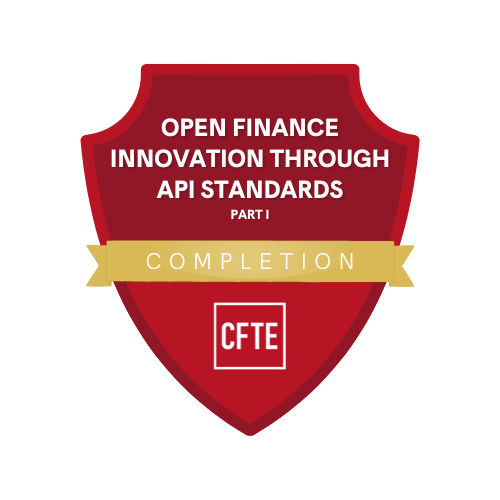Fintech & Innovation
Open Finance
Innovation through API standards: Part 1
This course embodies the transition towards a more inclusive, competitive, and consumer-centric financial landscape & aims to equip learners with the knowledge to lead within open finance.
Write your awesome label here.
Regulatory
API Integration
Strategic Planning
Innovation
Data Privacy and Security
Course Lessons
Open Finance as a driver for inclusive and competitive finance
The first chapter of the course on Open Finance serves as an introduction to the transformative potential of open finance as a driver for inclusive and competitive financial services. It elaborates on the fundamental shift from traditional financial services, where banks and insurance companies directly expose their services to consumers, to an open finance ecosystem characterised by standardised APIs. These APIs enable third-party providers (TPPs), including Fintechs, Regtechs, and Telcos, to create innovative apps and solutions, thereby offering consumers more choice and better services.
The global movements of market – regulatory driven initiatives
The second chapter addresses the global movement towards open finance, highlighting regulatory and market-driven initiatives worldwide. It explores the distinctions between open banking and open finance, emphasising the broader scope of open finance that includes not just payment services but a wider array of financial products like loans, investments, and insurance. This chapter showcases how different regions, including the European Union, Brazil, Australia, and China, are navigating the transition from open banking to open finance, each adopting unique approaches based on their regulatory environments and market conditions.



